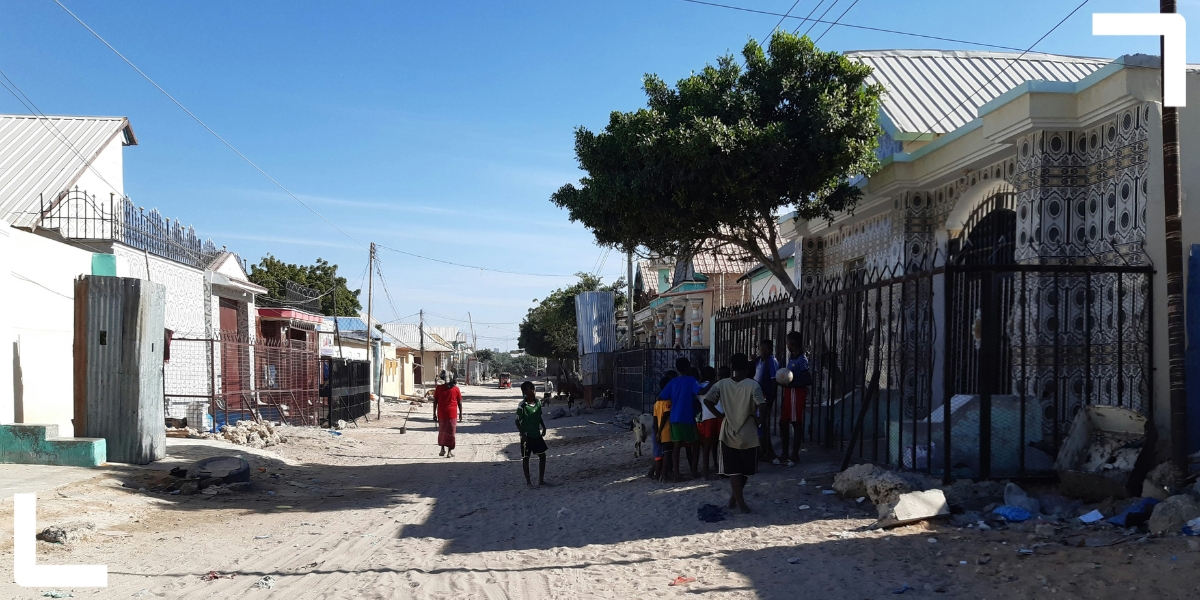Mogadishu – as the capital of the Somali government – is at a crucial crossroads, dealing with intricate political, security and development challenges. A new report by Afyare A Elmi and Faisal N Ali synthesises the key insights from ACRC’s research on Mogadishu’s urban development.
Rapid urbanisation has led to a surge in construction and escalating land prices in the city. At the same time, Somalia’s unresolved constitutional issues impact the governance of Mogadishu. The presence of al-Shabaab, along with the rise of youth gangs, adds to the city’s security dilemmas.
The report focuses on politics, city systems, and four key domains: land and connectivity, informal settlements and internally displaced people (IDPs), safety and security, and youth capability development. The authors examine how the distribution of power in Somalia influences development and the prospects for developmental reform in Mogadishu, and analyse the systems by which actors and agencies attempt to sustain and/or improve urban life. The research involved interviews, focus group discussions and document analyses.
Political settlement
The political settlement in Somalia is influenced by clan-based power-sharing, federalism, regular elections, and the threat from al-Shabaab. The survival of the federal government in Mogadishu largely depends on the presence of the foreign peacekeeping forces and international financial support.
Formal power in the city is embedded in the federal structure. The mayor and deputies are appointed by the sitting president, and district commissioners are appointed by the mayor. The city authority has limited authority in terms of decisionmaking. Clan dynamics and informal power-sharing arrangements play a significant role in local governance.
International financial assistance is the backbone of elite patronage and political rivalry in Mogadishu and throughout Somalia. In this topdown, internally mediated political settlement, it is primarily the elite who reap the benefits of the status quo. City politics mirrors national politics, characterised by a fragile power balance, patronage, economic rentseeking and unpredictability. The concerns, needs and voices of ordinary Somalis are ignored, resulting in failure in terms of service delivery.
Urban systems
Mogadishu’s systems are at varying stages of recovery from the recent extended civil war, with the government developing policies related to system governance. Prior to the war, most systems were under the control of the central government, but now, private companies and donors are also involved.
The report looks at the following systems: education, water, energy, transport, food distribution, waste management, finance, health, and law and order. Through a systems approach, it explores intersections between these systems and how they are impacted by the city’s complex political landscape.
Domains
In terms of land and connectivity, the report highlights the complexities of land ownership and usage in Mogadishu, influenced by historical claims, clan affiliations and informal settlements. It examines the city’s infrastructure, including roads and communication networks, and how these impact economic activities and access to services.
The authors also discuss the challenges faced by residents of informal settlements and IDP camps, such as inadequate housing, lack of basic services and vulnerability to evictions. They also look at efforts to integrate these settlements into the broader urban framework, to improve living conditions and access to services.
Safety and security challenges are another key focus, including the threat from al-Shabaab and the impact of clan-based conflicts. The paper explores how these issues affect social mobility and daily life for residents.
The report also highlights the importance of education and employment opportunities for youth in Mogadishu, addressing the gaps and challenges in these areas. It examines various programmes and initiatives aimed at empowering youth and enhancing their capabilities.
Developmental challenges
The report analyses and identifies critical developmental issues in Mogadishu and anticipates challenges in addressing them equitably and sustainably, both environmentally and fiscally. Key issues include the undefined security structure of the city, prevalence of youth gangs and the political economy of public service privatisation.
Improved governance, better infrastructure and inclusive polices are highlighted as key to creating a more stable and prosperous city. The report suggests viable solutions, taking into account obstacles such as contested governance, security concerns, urban infrastructure deficits, planning failures and the taxation system. The authors advocate a holistic approach to urban development, considering both formal and informal practices.
Header photo credit: Amina Mo / Unsplash. A street in Mogadishu, Somalia.
The African Cities blog is licensed under Creative Commons Attribution-NonCommercial-NoDerivatives 4.0 International (CC BY-NC-ND 4.0), which means you are welcome to repost this content as long as you provide full credit and a link to this original post.


